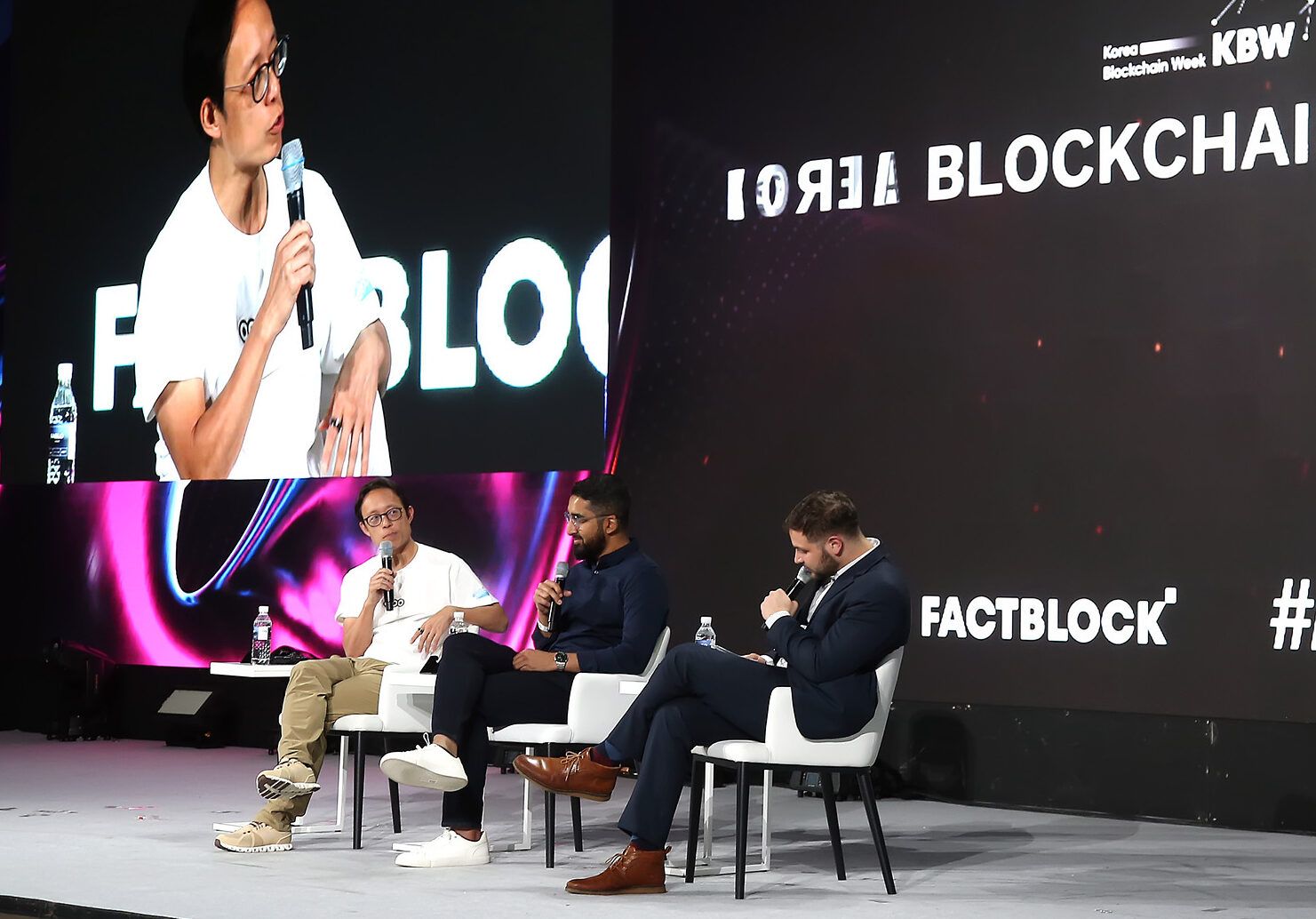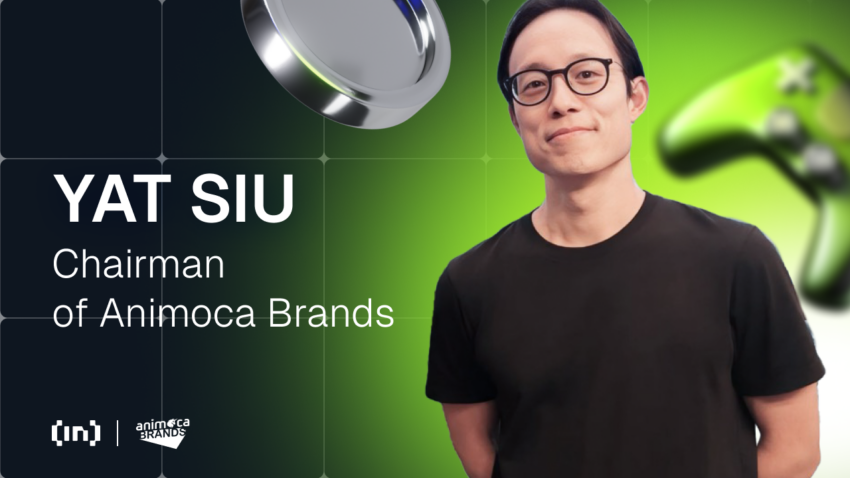Yat Siu, co-founder and executive chairman of Animoca Brands shared his unique perspective on the evolving landscape of Web3, drawing from his extensive experience in tech innovation and his multicultural background.
In a recent interview with BeInCrypto, Siu discussed Animoca’s Mocaverse, highlighted the stark contrast between Eastern and Western attitudes, and offered valuable advice for aspiring artists in the age of AI.
Why do you think the MOCA price rose significantly, compared to other gamefi tokens?
There is a whole series of tokens that haven’t done that well. But some have done well like Bitcoin, Ethereum, Solana, and TON, plus in our case, I would argue MOCA, too.
The key difference is the institutional support. Projects with institutional backing tend to perform more stable. Starting with the Bitcoin ETFs, I think we’re entering an institutional era of crypto, meaning that, to stand out, you now need institutional support.
How does the institutional support help the growth of projects?
The traditional stock market is by-majority institutional, but the token market is by-majority retail. In an institutional market, you diligently research to know what the project is about because you have large purchasing power and long-term planning.
Retails have a lot more short-term behavior naturally. For instance, Pump.fun launched two million tokens in the last 6 months. It is amazing as a business model, but also concerning. Among the new tokens, many of them are very small, and may also be very speculative.
An institution will not invest in Pump.fun. They have discipline. In this age, projects that have institutional support and capability become much more relevant.

As an advisor to the Hong Kong Government’s Web3 Task Force, how do you interpret the recent atmosphere of the industry in China and Hong Kong?
Although President Xi Jinping put blockchain technology into his agenda, you can’t just assume by China saying “we’re supportive of blockchain”, that they will allow Bitcoin to be traded in China. You can’t even trade the US dollar in China, and what makes you think it should be okay to do crypto?
But there is a role for Hong Kong, which has been a financial clearing house for international capital in and out of the mainland. It makes sense that Hong Kong is becoming pro-Web3 and pro-Crypto because it is the sandbox for China.
If something happens, it can happen in Hong Kong and won’t affect China. Moreover, Chinese capital might flow out to other places, but it would rather be in Hong Kong, a free market under China’s influence than move to the US ally’s soil like Singapore.
You have a Chinese background, but you grew up in the West, in Austria. How do Web3 and GameFi differ between East and West?
Asia is more pro-capitalist and the West is split between capitalism and, especially in Europe, more socialism. In Asia, even in China, they are capitalists by nature, and it doesn’t matter if you are called the Communist Party. That is not true for Europe and many young Americans.
So if you’re a gamer in Asia, you make money with your assets and it’s okay because by nature you are comfortable with capitalism. But in Europe, people don’t necessarily agree with that. In America, the younger generation doesn’t necessarily believe in capitalism because it hasn’t worked for them.
There’s an ironically greater love of capitalism in Asia, which is why DeFi and GameFi are growing. I wouldn’t say everyone, but there’s a much louder voice of people in the West who don’t like it. If you talk to gamers in the West, they will say “I don’t want money to swallow my game”.
Between Game Boy (of Nintendo) and Game Science (of Black Myth: Wukong), which one would you choose?
I would go for the Game Boy. I’m very proud that Black Myth: Wukong can be a global hit coming out of China. It’s an interesting moment. However, Wukong would not have been possible to be popular if it wasn’t for the earlier kinds of Asian game companies and Asia-led culture booms leading the way.
In other words, the Chinese moment came thanks to Japan and Korea. Japanese anime paved the way for K-pop and K-drama, and K-culture did the same for China. Even if Wukong might become bigger, Gameboy should be respected.
You studied music in college in Vienna. As an artist, what advice do you have for aspiring artists in the age of AI?
Regardless of what you do, especially for those who want to do creative things, it is important to own your property. The most successful musicians like Michael Jackson had a growing asset base because they owned their intellectual properties.
On top of that, you need to understand money and business which we don’t teach in school. You can’t have independence if you outsource the value of the system.
If you have an idea, if you create music, if you’re a performer, the important thing is to make sure you own enough of your property to have the long tail benefit for your work. Maybe it would make no difference if you’re not very successful, but if you have something successful, you know what I mean.
How can blockchain benefit content creators?
The biggest theft in Web2 was those like YouTube, Instagram, and Tiktok. In the early days of YouTube, mukbangs, live-streamed videos where viewers watch the host eat, were very popular, but even when the creators became famous, the content was not theirs and they lost the IPs to YouTube.
The same is true for Instagram, and when people take a photo on Instagram, they spend a long time getting the angle. But they don’t get paid for the work or its IP. Even when you make a video that goes viral on TikTok, you get nothing.
In Web3 with blockchain, you own the property. If you mint it as an NFT, you have the history and the record. You will be able to defend theft from the blockchain. You can’t stop it, but you can trace and claim its ownership. That’s the point.
What major factors of the industry have drawn your and Animoca’s attention recently?
The crypto industry has grown over the last 12 months. We’ve had a lot more launches, a lot more projects, and a lot more people involved in the space.
In particular, we at Animoca are excited about TON and Mocaverse. The TON ecosystem brings many users into Web3 and our games like Gamee now have 90 million users. And for the Mocaverse, we think it’ll solve digital identity.
Often it is the same people who are essentially farming the tokens which is a problem. You want to make it more distributed and you want to make it not go to bots but to individuals. You need an identity solution, and that’s what Animoca’s Mocaverse is doing.
Disclaimer
In compliance with the Trust Project guidelines, this opinion article presents the author’s perspective and may not necessarily reflect the views of BeInCrypto. BeInCrypto remains committed to transparent reporting and upholding the highest standards of journalism. Readers are advised to verify information independently and consult with a professional before making decisions based on this content. Please note that our Terms and Conditions, Privacy Policy, and Disclaimers have been updated.



